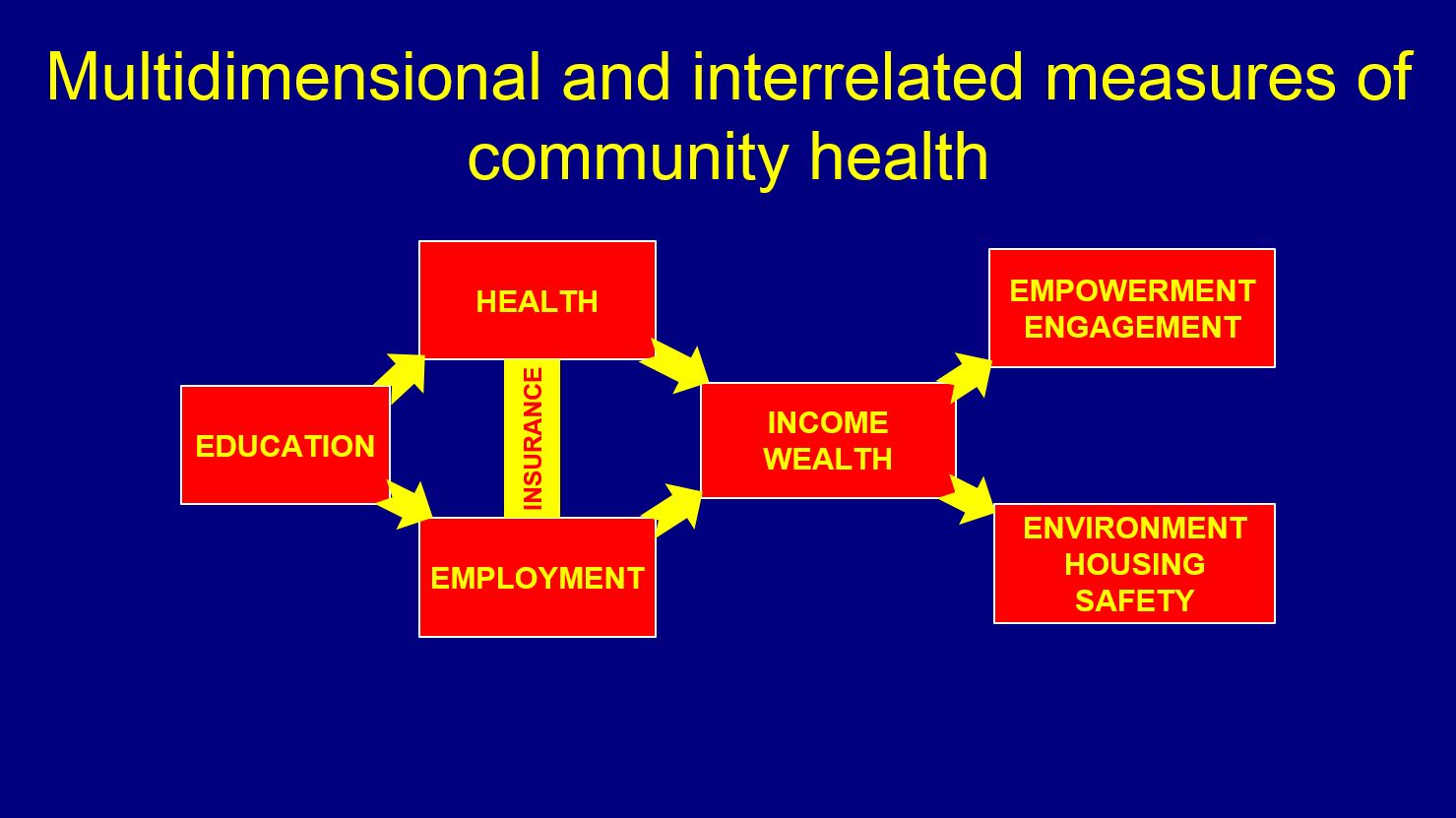 Figure 1: Multidimensional and interrelated measures of community health. Image by Frank FranklinFrank A. Franklin, M.D., M.P.H., Ph.D. - Professor and Chair, Department of Maternal and Child Health, School of Public Health
Figure 1: Multidimensional and interrelated measures of community health. Image by Frank FranklinFrank A. Franklin, M.D., M.P.H., Ph.D. - Professor and Chair, Department of Maternal and Child Health, School of Public Health
frankln@uab.edu
Dear Students,
The United States, among similar high-income countries, ranks low on many health measures (e.g., infant and maternal mortality). Also, within the U.S., there are twofold differences in these health measures between whites and African-Americans. Socioeconomic factors, such as education, employment, wealth and family/social support, and personal health behaviors like diet and exercise, unsafe sex and the use of alcohol and tobacco account for 70 percent of these deficits and inequities while health care (e.g. access to care and quality of care) is responsible for only 20 percent. Hence, a larger view of community health includes multidimensional and interrelated measures such as income, employment, education and training, health care, housing, income segregation, neighborhood crime, and civic empowerment and social engagement (see Figure 1). By these measures, I diagnose the city of Birmingham as being in very poor community health.
 Letter to the Editor. Illustration by Sarah FaulknerMatt King, Ph.D. - Assistant Professor of Philosophy
Letter to the Editor. Illustration by Sarah FaulknerMatt King, Ph.D. - Assistant Professor of Philosophy
mattking@uab.edu
Dear Students,
What’s the main purpose of a college education? Increasingly, we hear that it is to help you get a job. While no doubt securing a bachelor’s degree helps one on the job market, this thinking is dangerous. If we allow that the value of a degree lies primarily in what the credentials will get you, it suggests that fields of undergraduate study that don’t contribute directly to employment outcomes for its students should be scrapped. It means that we should tie the value of departments and programs directly to how their students fare on the job market.
 The Board of Trustees makes the rules. Photo by Sarah FaulknerWallace Golding - Contributer
The Board of Trustees makes the rules. Photo by Sarah FaulknerWallace Golding - Contributer
wsgoldin@uab.edu
I resent the American collegiate education system, but not for the reasons many of you may think. It is not the outrageous cost of my education that angers me, nor is it the rampant corruption that seems to have taken university officials by storm. Rather, it is the overriding and counterintuitive themes of censorship and political correctness on college campuses that I find so irritating. Speech codes and free speech zones are components of a broken machine, and they are ruining your college education.
Before I go any further, I want to be clear that I am in no way advocating for the use of discriminatory speech on college campuses or anywhere else in society. I do not condone the practice of derogatory or slanderous language, and I am not suggesting that we all abandon our personal filters.
Instead, I am proposing that we all reconsider why we spend thousands of dollars each year on tuition.
Figure 1: Multidimensional and interrelated measures of community health. Image by Frank FranklinFrank A. Franklin, M.D., M.P.H., Ph.D. - Professor and Chair, Department of Maternal and Child Health, School of Public Health
 Letter to the Editor. Illustration by Sarah FaulknerMatt King, Ph.D. - Assistant Professor of Philosophy
Letter to the Editor. Illustration by Sarah FaulknerMatt King, Ph.D. - Assistant Professor of Philosophy The Board of Trustees makes the rules. Photo by Sarah FaulknerWallace Golding - Contributer
The Board of Trustees makes the rules. Photo by Sarah FaulknerWallace Golding - Contributer